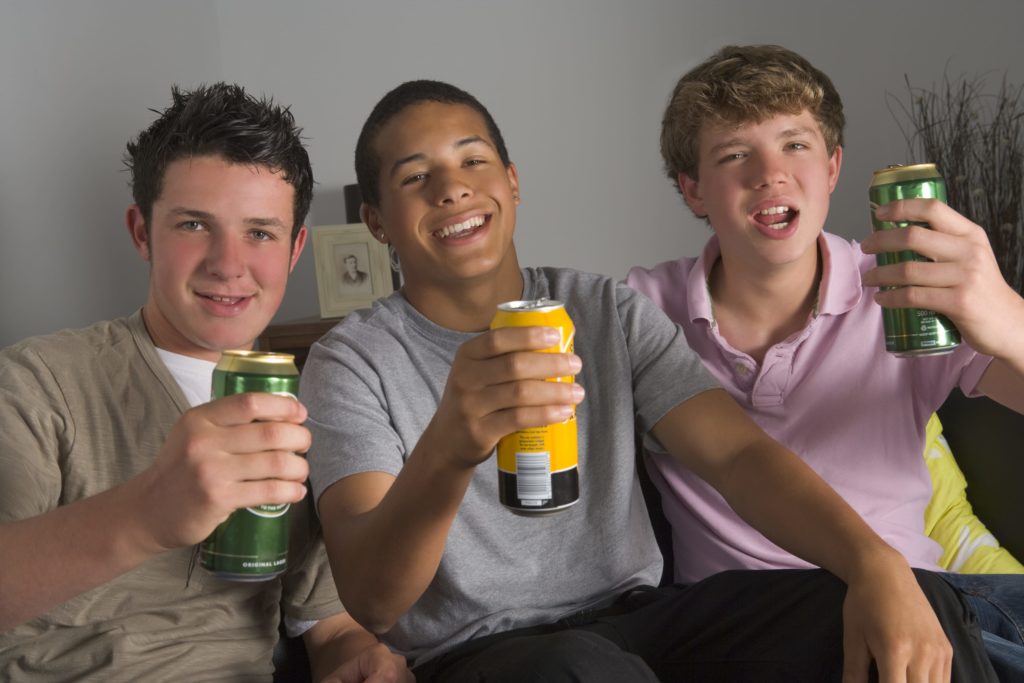Sex, drugs and rock ‘n’ roll is only the latest version of a centuries-old expression regarding “wine, women and song.” Teens have been using substances, including alcohol, since ancient times, with their elders hard-pressed to stop them for equally as long. Devising consequences and doling out punishments is one time-honored approach, but finding ways to address some of the reasons teens drink and preventing teenage alcohol consumption is a potentially more effective and positive approach. Two British researchers published the results of just such an effort—a group intervention for teens based on positive psychology concepts and aimed at helping eliminate some of the reasons teens engage in drinking—especially in dangerous binge drinking. While the study was only a pilot and intentionally small in scale, the results are great news for those of us who work with and love our teens. The researchers identified several basic reasons for teenage drinking: peer pressure and the effort to fit in was a primary reason, but additional reasons teens gave for drinking included wanting to feel happy, needing to deal with stress, and drinking to change their mood. The study aimed to help provide teens with other ways to achieve these goals—to feel happier, de-stress, and change their moods—without using substances. The way the researchers did this was to have the teens attend a weekly eight-session group. The teens selected for the group were already engaged in drinking; some reported binge drinking behavior and some also reported other substance abuse, including marijuana use. Each week, a different module or “zone” was presented. These educational modules included focusing on:
- Physical health, exercise, nutrition and activity
- Gratitude
- Positive emotions
- Relaxation
- Interpersonal relating
- Goal-setting and optimism
- Identifying personal strengths
- Resilience and dealing with setbacks
Unlike other prevention efforts, the issue of drinking was not dealt with head on, except in the module dealing with goal-setting, as participants were encouraged to select a behavior to change as part of this module. This approach—to focus on strengths, positive feelings and maximizing physical and emotional positives—is in keeping with the positive psychology approach. The group was designed to bring these aspects of a positive psychology treatment approach to teenagers engaged in alcohol abuse. The results for this study are impressive: self-reports of happiness and well-being increased and drinking behavior decreased. Specifically, the module dealing with stress reduction and teaching meditation techniques was rated most highly by the participants and some reported feeling positive about learning concrete ways to feel good without drinking or using drugs. While the study was small with a limited number of participants, these results clearly offer a hopeful option for additional study and intervention.
Great Idea! Let’s Make It Better!
For parents, school counselors and addiction professionals seeking to make headway with teens who are drinking or using drugs, any and all possibilities for being successful—even in a limited way—are worth exploring. The intervention I’ve been describing (the eight-week group teaching positive psychological modules) is a great starting point. Some possible additions or changes to the recipe that I’ve shared below may provide an even more effective outcome. The group intervention did not make use of homework, or seek to have the participants put into practice the ideas they had learned about in the group. One potential way to increase the effectiveness of such an intervention might be to find ways to have teens not only learn positive psychology concepts in a group setting, but also to find ways to integrate those concepts into their lives. In a rehab setting, this may be easier to include, as staff can provide reminders or note opportunities for practice. Another challenge in using a weekly group as an intervention involves the logistics of ensuring that each teen makes it to group each week. In a school or outpatient setting, this can be difficult, as teens can be masters of avoidance, and unavoidable interruptions happen (illness, family situations, sports schedules, etc.). In a rehab or inpatient setting, this type of intervention could be conducted, perhaps on a bi-weekly schedule instead of weekly. Ways to ensure attendance may include providing transportation to and from the group, and possibly offering childcare for families with teens who look after younger siblings. Finding ways to reach teens, especially teens who are already using alcohol or other substances, can feel overwhelming and even hopeless at times. Don’t forget to adopt positive psychology approaches in your own life and work, so that you can be a role model for the teens you love.






